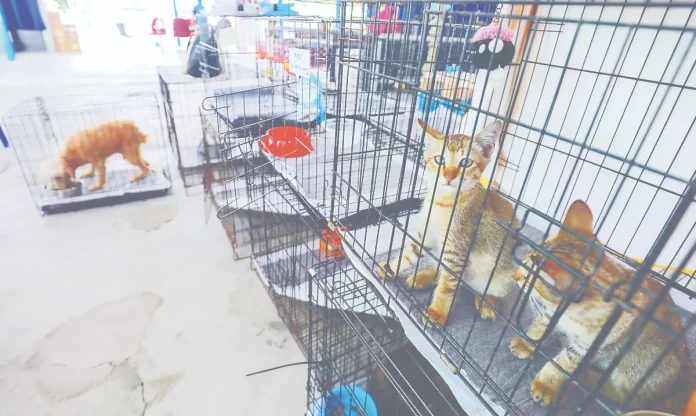Report by theSun prompts groups to offer action, advice and collaboration with govt to create best mechanism
PETALING JAYA: Animal rights advocates are urging the government to establish an independent Animal Welfare Board, saying the current structure under existing ministries has been ineffective in protecting animals and ensuring consistent enforcement.
As reported by theSun yesterday, veterinarian Dr Jawahir Abdullah has called for the creation of a dedicated ministry or Animal Welfare Department to address overlapping jurisdictions and strengthen enforcement.
Echoing concerns highlighted in the report, animal welfare groups have renewed calls for an independent board with full authority and accountability.
Malaysian Animal Welfare Association (Mawa) president Mukunnan Sugumaran said currently, animal welfare issues fall under the Agriculture and Food Security Ministry, which focuses mainly on livestock and food safety, or the Housing and Local Government Ministry, which oversees dog-catching operations.
“The proposed Animal Welfare Board should function as an autonomous body led by individuals and organisations with genuine passion and hands-on experience in animal protection, not just those with academic credentials.
“The board needs to be structured to truly meet the (requirements to ensure) animal welfare in Malaysia.
“We need a dedicated and compassionate team.
Knowledge is important, but empathy and commitment are equally vital,” he told theSun.
Mukunnan said the board should have the mandate to oversee dog-catching operations, investigate cruelty cases and ensure that abuse – whether involving pets or strays – is met with appropriate legal action.
Mukunnan added that the Veterinary Services Department often cites manpower shortage as a reason for limited enforcement, suggesting collaboration with NGOs as a practical solution.
“If the department is short-staffed, why not work with trained volunteers from NGOs, similar to community policing?” he said, while calling for amendments to the Animal Welfare Act 2015 to introduce stricter penalties and implement a nationwide no-kill policy for strays.
“Penalties should include a minimum jail term and mandatory community service at animal shelters,” Mukunnan said.
“The same laws should apply to everyone, including those involved in animal control operations.”
He said Mawa has submitted proposals to lawmakers, and urged Malaysians to take a more active role in managing stray populations through collaboration with local animal groups.
“Reporting cases alone isn’t enough.
Community involvement through neutering and care programmes can make a real difference.
“We must learn to coexist with all living beings, not just tolerate their presence,” he said.
Persatuan Haiwan Terbiar Malaysia (SAFM) shared similar views, saying an independent Animal Welfare Board must have genuine authority to be effective.
“It should have full autonomy and be free from political influence,” said its president Kalaivanan Ravichandran, while stressing that the board should have the power to audit and review enforcement action to ensure accountability.
“Without these measures, enforcement would remain inconsistent and inadequate,” he said, adding that closer collaboration with NGOs would improve transparency and community engagement.
He also said NGOs are often the first responders to abuse cases but lack legal authority to act.
“Our challenge isn’t finding abuse, it’s getting authorities to take action.”
Kalaivanan urged the government to amend the Animal Welfare Act 2015 to allow qualified NGOs to assist in investigations.
Beyond enforcement, SAFM emphasised the need for long-term education and cultural change.
“Public education is key to changing the mindset of pet owners.
We need greater awareness on sterilisation, adoption and responsible ownership,” Kalaivanan said, while calling for stricter breeding regulations and affordable neutering programmes.
He said animal welfare requires a holistic approach that combines stronger laws, education and collaboration with NGOs.
“The current system isn’t enough to tackle the growing cases of cruelty and neglect.
“SAFM is ready to play a bigger role, but we need the government’s support.
Together, we can create real change for the animals,” he said.








